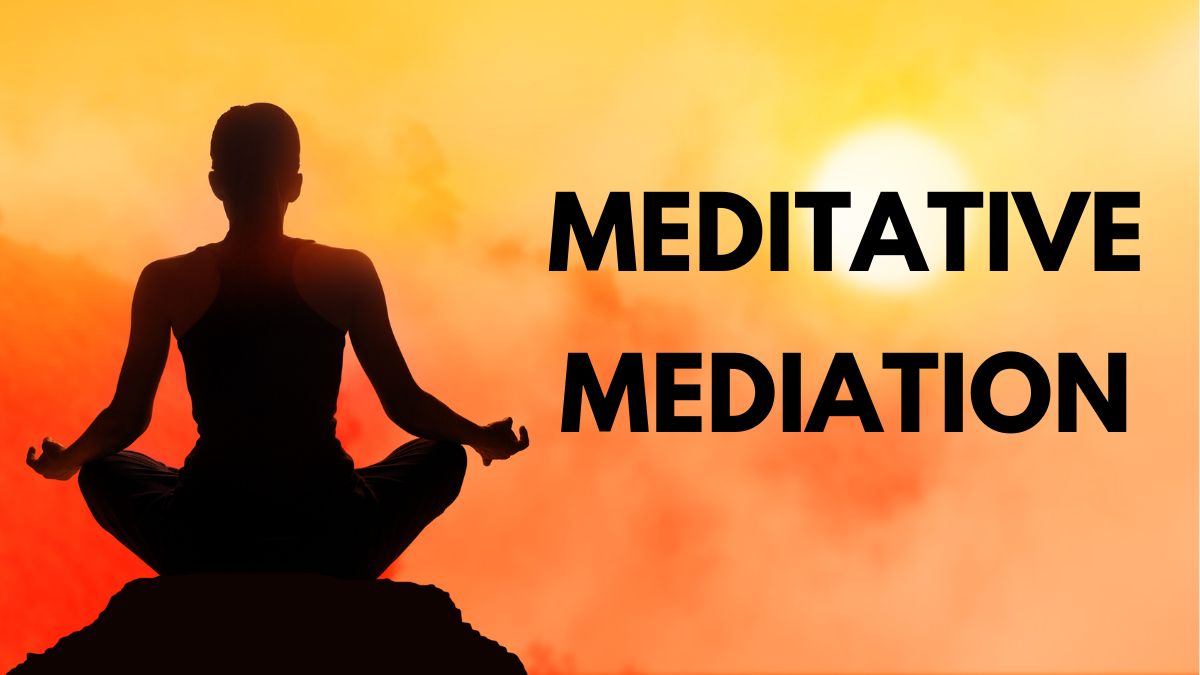- By Kashish Rai
- Fri, 08 Dec 2023 10:50 AM (IST)
- Source:JND
Meditative Mediation: It's possible that the terms 'Mediation' and 'Meditation' could cause confusion. Upon initial examination and comprehension, it seems that these two terms are homophones, sharing the same appearance and sound. However, upon closer inspection, there are conceptual and general differences between these two terms. Even yet, meditation and meditation are not synonymous. Each operates inside a specific domain. However, while having distinct personalities and goals, they might coexist in this dynamic ecosystem where the value of both meditation and mindfulness is consistently recognised. Jeevesh Mehta, an advocate, trained mediator and deep meditator, outlines the distinctions between these two terms and shares the importance of meditation in mediation for wellness.
Meditative Mediation: Difference Between Meditation And Mediation
Mediation - An unbiased third party impartially supports opposing parties in resolving disputes via the use of specialised communication and negotiation strategies in the organised, interactive process known as mediation.
Meditation - By practising mindfulness or focusing the mind on a specific object, idea, or action, a person can train their attention and awareness, resulting in a state of mental clarity, emotional stability, and calmness. This is known as meditation.

The benefits of mindfulness and meditation are continuously acknowledged. (Image Source: Canva)
Meditative Mediation: What Does It Mean?
Challenges between people can be resolved through mediation, while problems within oneself can be resolved through meditation.
A derived definition of "meditative mediation" would be: “A systematic, thoughtful, interactive process in which opposing parties are assisted, communicated with, and allowed to negotiate a resolution to their conflict by a trained mediator who is neutral, focused, attentive, emotionally stable, and calm.”
Meditative Mediation: What Is The Importance Of Mediation In Meditation
The "Mediator" is a key figure in every mediation process, whether it is successful or not. For mediators, self-belief, awareness, concentration, emotional serenity, and mental stability are crucial qualities. As mediators, one frequently becomes involved in other people's disputes, but they sometimes fail to realise that this also becomes a part of themselves. In addition to helping the mediator resolve the parties' issues, mediation also helps the mediators deal with the psychological effects of other people's difficulties, among other advantages like self-motivation and self-development.
Here is a list of advantages that a Mediator who consistently practices meditation could experience:
- Willingness to move past words, gestures, and conversation employed by opposing parties.
- Generating creative concepts and the capacity to solve problems.
- Acquiring the skill of distancing oneself while actively participating in conflicts and pain.
- The capacity to maintain composure and balance in the face of conflict and strong feelings.
- Decreased levels of tension and aggravation.
- Capacity to have uncomfortable and dangerous conversations on delicate subjects without considering other people's emotions or moods.
- Sensitivity to the actions and feelings of the parties, expressing their ideas and sentiments.
ALSO READ: Top 4 Zodiac Signs That Are Ardent Devotees Of Lord Shiva And Recieve His Blessings
- A deeper comprehension of the severity of the parties' suffering.
- Improved intuition regarding actions, responses, and results.
ALSO READ: 25 Divine Qualities Of Goddess Radha Rani That Never Fail To Impress Lord Krishna

